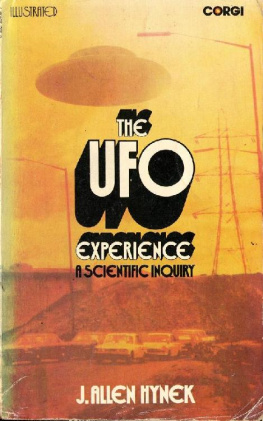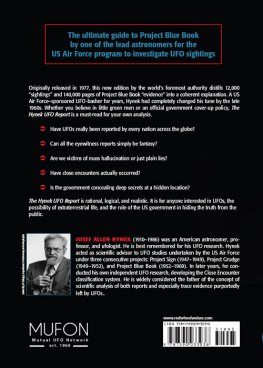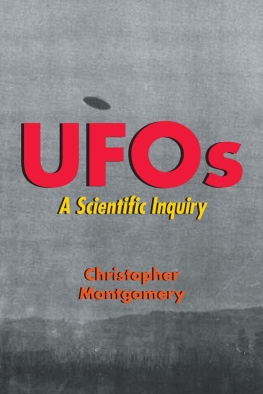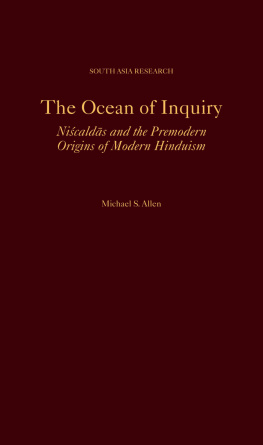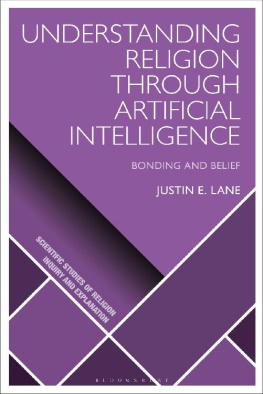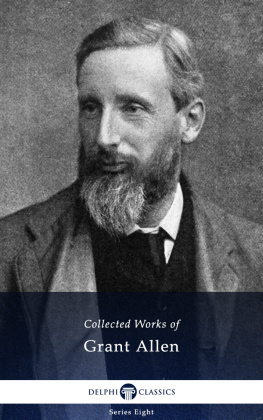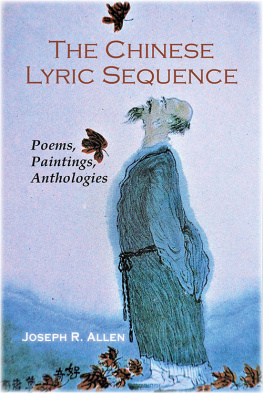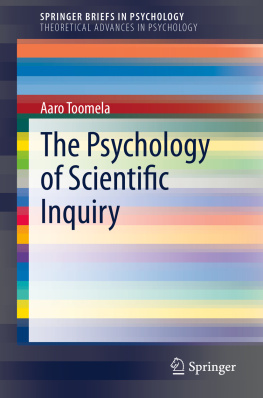J. Allen Hynek - The UFO Experience_ A Scientific Inquiry
Here you can read online J. Allen Hynek - The UFO Experience_ A Scientific Inquiry full text of the book (entire story) in english for free. Download pdf and epub, get meaning, cover and reviews about this ebook. year: 1972, genre: Religion. Description of the work, (preface) as well as reviews are available. Best literature library LitArk.com created for fans of good reading and offers a wide selection of genres:
Romance novel
Science fiction
Adventure
Detective
Science
History
Home and family
Prose
Art
Politics
Computer
Non-fiction
Religion
Business
Children
Humor
Choose a favorite category and find really read worthwhile books. Enjoy immersion in the world of imagination, feel the emotions of the characters or learn something new for yourself, make an fascinating discovery.
- Book:The UFO Experience_ A Scientific Inquiry
- Author:
- Genre:
- Year:1972
- Rating:4 / 5
- Favourites:Add to favourites
- Your mark:
- 80
- 1
- 2
- 3
- 4
- 5
The UFO Experience_ A Scientific Inquiry: summary, description and annotation
We offer to read an annotation, description, summary or preface (depends on what the author of the book "The UFO Experience_ A Scientific Inquiry" wrote himself). If you haven't found the necessary information about the book — write in the comments, we will try to find it.
The UFO Experience_ A Scientific Inquiry — read online for free the complete book (whole text) full work
Below is the text of the book, divided by pages. System saving the place of the last page read, allows you to conveniently read the book "The UFO Experience_ A Scientific Inquiry" online for free, without having to search again every time where you left off. Put a bookmark, and you can go to the page where you finished reading at any time.
Font size:
Interval:
Bookmark:
Dr. J. Allen Hynek was astronomical consultant to the U.S. Air Force's Project Blue Book, the final official arbiters on all UFO reports. He is currently Director of the Lindheimer Astronomical Research Center at Northwestern University and Chairman of Northwestern's Astronomy Department. In the past Dr. Hynek served as Associate Director of the Smithsonian Astrophysical Observatory in Cambridge, Mass., as well as heading its NASA-sponsored satellite tracking programme.
In THE UFO EXPERIENCE this eminent scientist takes on his colleagues on behalf of an issue that is conventionally sacred...
During my many years as scientific consultant to the United States Air Force on the matter of Unidentified Flying Objects I was often asked (and frequently still am) to recommend 'a good book about UFOs'. Very often, too, the request was accompanied by remarks along the line of 'Is there really anything to this business at all?' 'Just what's it all about anyway -is there any reliable evidence about UFOs?' or 'Where can I read something about the subject that wasn't written by a nut?'
With a few notable exceptions I have been hard pressed to give a good answer to such questions. There are, of course, many books dealing with the subject. They regale the reader with one UFO story after another, each more spectacular than the other, but little space is devoted to documentation and to evaluation. What were the full circumstances surrounding the reported event? How reliable and how consistent were the reporters (all too often it is the lone reporter) of the event? And how were the UFO accounts selected? Most often one finds random accounts, disjointed and told in journalese.
I hope that this is a book to answer the questions of the person who is curious about the UFO phenomenon as a whole, who would like to have it appraised and to appraise it himself.
I have often asked myself what 'a good book on UFOs' would be like. Who would be qualified to write it, what should it contain, and what questions should it attempt to answer? I decided to try to write such a book, basing it on my 20 years of close association with the subject, during which time I had interrogated many hundreds of persons and personally investigated nearly as many cases. I decided to describe, primarily for the benefit of those who have been honestly puzzled by the UFO question, what UFO reports are like firsthand, what kind of people make them, what sorts of things the reports have in common, and how the subject has been presented and treated (I cannot honestly say 'studied') in the past.
I cannot presume to describe, however, what UFOs are because I don't know; but I can establish beyond reasonable doubt that they are not all misperceptions or hoaxes. Indeed, those reports that do stem from identifiable sources do not, obviously, satisfy the definition of an Unidentified Flying Object. Misperceptions of aircraft, high altitude balloons, meteors, and twinkling stars do account for many initial reports, but these do not qualify as UFO reports and need be treated only briefly in a book about UFOs. 'A good book on UFOs' should, I think, be honest, without prejudgment; it should be factual and as well documented as possible. It should not be, however, a book that retails - or retells - UFO stories for the sake of their story value; rather it should attempt to portray the kinds of things that people - real everyday human beings with jobs and families - say they have actually experienced. These people are not merely names in a telephone book; they are flesh and blood persons who, as far as they are concerned, have had experiences as real to them as seeing a car coming down the street is to others.
I hope this book is one that will be recommended to you as 'a good book on UFOs'.
J. Allen Hynek
Northwestern University Evanston, Illinois January i, 1972
ACKNOWLEDGMENTS
I am beholden to many persons for helping me in the preparation of this book. In particular, I wish to thank Professor Thomas Goudge, Department of Philosophy, University of Toronto, for his many helpful discussions of the subject matter in the early stages of preparation and Dr. Paul Davies, Institute of Theoretical Astronomy, University of Cambridge, England, for productive discussions in the latter stages. Dr. Harry Wood, Arizona State University, Ms. Jennie Zeidman, and Ms. Necia Apfel critically read the manuscript, and to their valuable suggestions were added those of Dr. Jacques Vallee, Stanford University, and Mr. Fred Beckman, of the University of Chic-: ago.
I am indebted to Mr. William Weitzel, Ms. Josephine Clark, Mr. Ted Phillips, Mr. Warren Smith, Mr. Raymond Fowler, Mr. Bud Ledwith, and Ms. Isabel Davis for the use of material relating to UFO cases in this country and to Mr. W. K. Allan and Mr. Brian Cannon, Canadian UFO investigators, for making available Canadian UFO cases.
I am especially grateful to Ms. Mary Lou Armstrong for her permission to publish her letter of resignation as administrative assistant to Dr. Condon and to Mr. William Powers for permission to use portions of his critique of the Condon Report, which was refused publication in Science.
My grateful thanks go to all of the above and certainly to my secretary, Ms. Ann Larson, for her efficient and repeated typings of the manuscript.
There is a sense in which each age is ripe for breakthroughs, for changes that were not only impossible but even frightening when imagined in an earlier age. Yet despite man's potential for discovery, there is inherent in each epoch of man's history a certain smugness that seems not to be apparent to most participants in that age. It is a complacent unawareness of the scope of things not yet known that later epochs look back upon with a sympathetic smile of condescension, if not with polite laughter.
By the same token, the breakthroughs and world concepts of the future probably would be unthinkable and certainly bewildering if we could now glimpse them. Yet changes in their proper time do occur, and it therefore behooves us to study seriously, not dismiss with scathing ridicule, the puzzling phenomena of today in the hope of coming upon satisfactory explanations. We may thus venture into the future, so to speak.
The UFO phenomenon may well be one such challenging area of interest even though it is seemingly out of place in our present world picture - as incredible to us as television would have been to Plato. The study of this frequently reported phenomenon may offer us an enticing glimpse of and point a beckoning finger to the future.
Occasionally scientists sense the presence of the intangible, awesome domain of the unknown. Sir Isaac Newton, one of the greatest scientists who ever lived, was one who did:
I do not know what I may appear to the world] but to myself
I seem to have been only like a boy playing on the seashore and
diverting myself, now and then finding a smoother pebble or a prettier shell than ordinary, whilst the great ocean Of truth lay all undiscovered before me.
More often philosophers sense the limitations of the present more quickly than do scientists, absorbed as the latter are in their immediate problems. The philosopher William James pointedly remarked upon the restrictive views of the 'establishment' of his day (1895), particularly as manifested among his colleagues at Harvard:
There is included in human nature an ingrained naturalism and materialism of mind which can only admit facts that are actually tangible. Of this sort of mind the entity called 'Science' is the idol. Fondness for the word 'scientist' is one of the notes by which you may know its votaries; and its short way of killing any opinion that it disbelieves in is to call it 'unscientific'. It must be granted that there is no slight excuse for this. Science has made such glorious leaps in the last 300 years ... that it is no wonder if the worshippers of Science lose their heads. In this very University, accordingly, I have heard more than one teacher say that all the fundamental conceptions of truth have already been found by Science, and that the future has only the details of the picture to fill in. But the slightest reflection on the real conditions will suffice to show how barbaric such notions are. They show such a lack of scientific imagination that it is hard to see how one who is actively advancing any part of Science can make a statement so crude. Think how many absolutely new scientific conceptions have arisen in our generation, how many new problems have been formulated that were never thought of before, and then cast an eye upon the brevity of Science's career. Is this credible that such a mushroom knowledge, such a growth overnight at this, can represent more than the minutest glimpse of what the universe will really prove to be when adequately understood? No! Our Science is but a drop, our ignorance a sea. Whatever else be certain, this at least is certain: that the world of our present natural knowledge is enveloped in a larger world of some sort, of whose residual properties we at present can frame no positive idea.
Next pageFont size:
Interval:
Bookmark:
Similar books «The UFO Experience_ A Scientific Inquiry»
Look at similar books to The UFO Experience_ A Scientific Inquiry. We have selected literature similar in name and meaning in the hope of providing readers with more options to find new, interesting, not yet read works.
Discussion, reviews of the book The UFO Experience_ A Scientific Inquiry and just readers' own opinions. Leave your comments, write what you think about the work, its meaning or the main characters. Specify what exactly you liked and what you didn't like, and why you think so.

